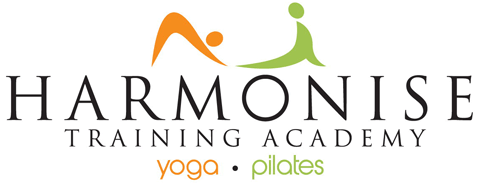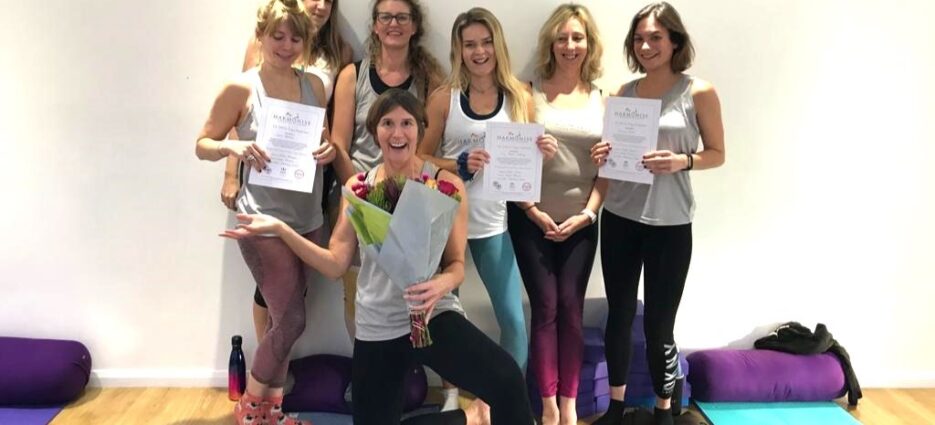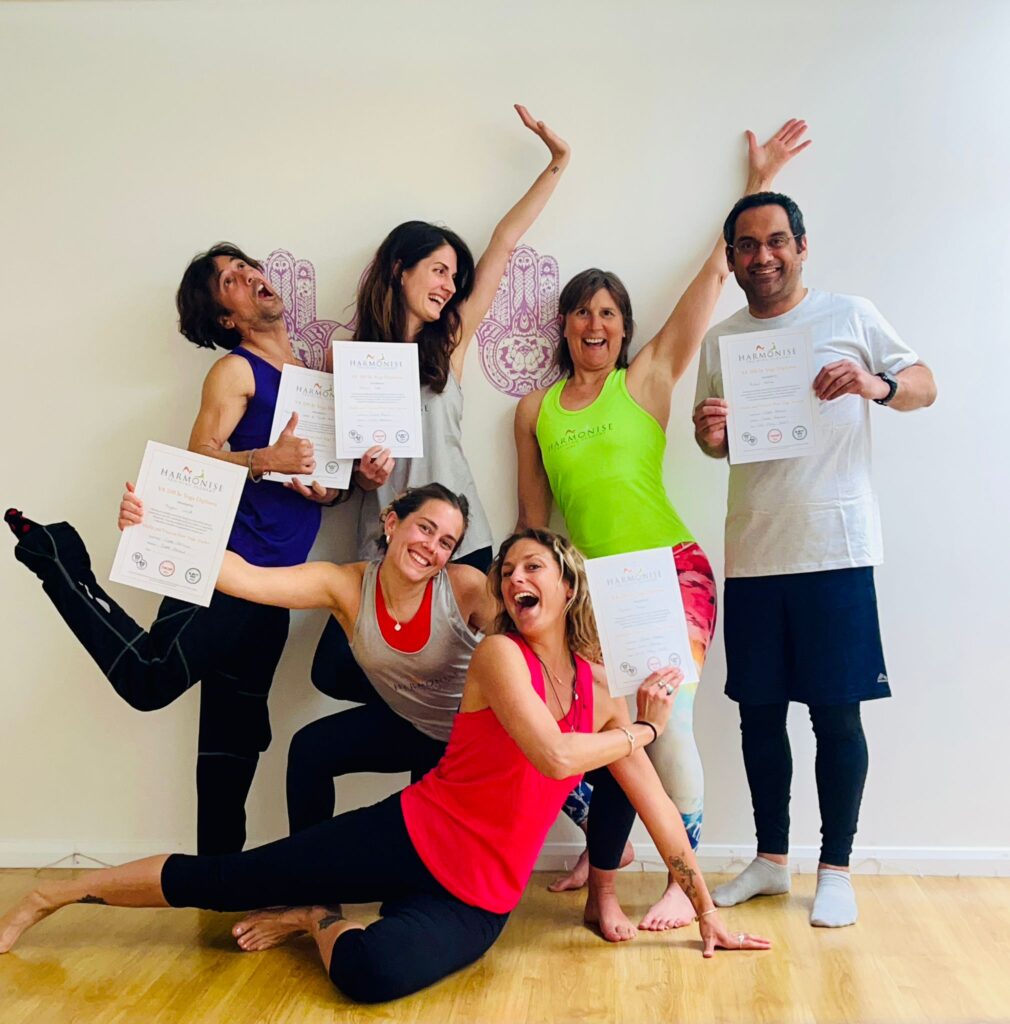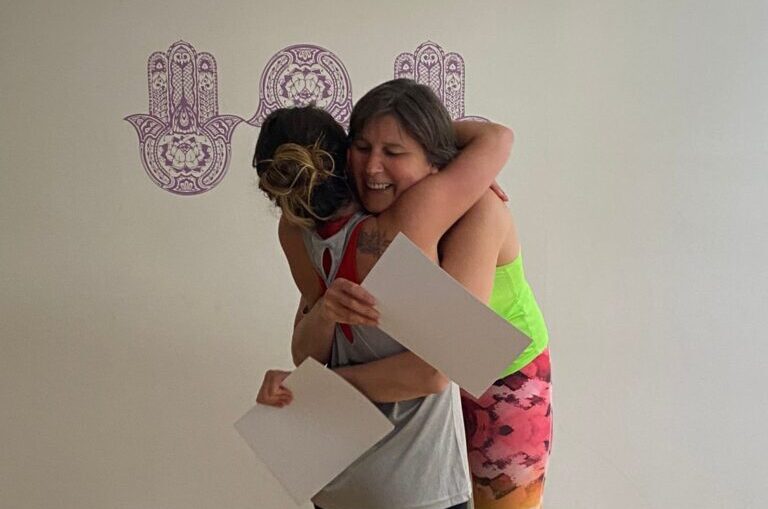Choosing In-Person Yoga or Pilates Training: 8 Compelling Reasons and the Power of Personalized Guidance
Time and time again I witness the transformative journey of like-minded individuals in our courses, where growth is exponential… and I am in awe. I always reassure individuals who express nervousness or self-criticism with these words: “Give that burden to me – trust the process, trust me, and, by the end of the course, you’ll find trust in yourself.”
Yoga and Pilates are timeless forms of functional movement suitable for any age, shape, or starting point. Breath is a movement practice—you can do it lying in bed. We need more teachers offering inclusive classes and accessible classes and you could be one of them!
After completing a training course, you can go on to specialise further offering courses for Older Adults or those with common health conditions, pregnancy and post-natal or specialise in a specific type of yoga such as Yin or Yoga Nidra.
I am a strong advocate for in-person teacher training, especially for honing vocational skills. While online resources offer flexibility (and we at Harmonise offer these in addition to our programs), my recent experiences highlight the irreplaceable benefits of in-person courses. I’ve recently taken a couple of online courses and, despite the teachers being highly skilled, personable, enthusiastic, and friendly I still feel that I would have gained significantly more from them if they had been conducted in person.
So, why choose in-person training? Here are some compelling reasons:
8 Reasons to Choose In-Person Yoga or Pilates Teacher Training
1. A far more personalised experience:
My role as a teacher extends far beyond delivering information and sharing knowledge; it’s about guiding individuals on a transformative journey tailored to their unique aspirations, needs and strengths – physically, emotionally, and spiritually. My goal is to provide personalised support, accountability, and guidance, drawing from my observations, intuition, and years of experience. I believe in fostering confidence in every Harmonise trainee, helping them navigate a path that suits them best. And believe me, there are limitless directions you can go in! This is also where having fewer tutors ensures a more personal experience, addressing and meeting individual learning needs on a deeper level.In-person training, with its personal touch, is the key to unlocking the full potential of every learner. Reading the energy and dynamics of a group, understanding individual needs, and building a personal connection are crucial aspects that make in-person training stand out.
In-person training allows for dynamic interaction, reading the energy of the room, and responding intuitively to questions or non-verbal communication. Although there is always required material to cover in each session, the way this is structured or delivered (practically, through discussion or demonstration) will vary each time depending on the needs of individuals and the group. Online options lack the same level of visibility, interactions, and focus, making in-person engagement invaluable. And of course none of this is possible in pre-recorded courses!
3. Accountability:
Accountability is a top priority, in fact I feel it is crucial. How many times have you started something and left it unfinished? This is normal, human behaviour and very common in our busy lives. But, having set dates and times in your diary for in-person courses ensures commitment and focus, you make the time, you turn up. Online real-time courses may be better than recorded ones, but it’s easy to get distracted by other things (interruptions, phone, multi-tasking etc)… or just skipping a session to catch the replay later. In-person courses demand an investment of precious time and real presence which boosts dedication, resulting in better learning outcomes. Meeting deadlines is also more likely, but the benefit of personalised support means we can work with you on flexible deadlines if extra time is needed… with accountability of course. It’s like simultaneously training to be a Pilates or Yoga teacher and receiving coaching – a worthwhile investment!
4. Social Connection:
Social connection is one of the key pillars of health, and isolation contributes to health decline in aging populations. Joining a collective journey with like-minded individuals fosters new connections, friendships, and lifelong shared memories, releasing oxytocin and benefiting the ventral vagal neural circuit for optimum function—the only branch of the nervous system where healing can occur. This enhances the learning experience as we all seek connection (whether we realise it or not).
While online Zoom training served as a welcomed backup during Covid, long-term use has pitfalls, according to neuroscientists(1), Research also shows that ‘Zoom fatigue’ and ‘zoom anxiety’ are real phenomena due to the lack of social cues(2). But above all, the collaboration, community, team spirit, and camaraderie of in-person experiences are what elevate in-person experiences and leave a lasting impact for a lifetime.
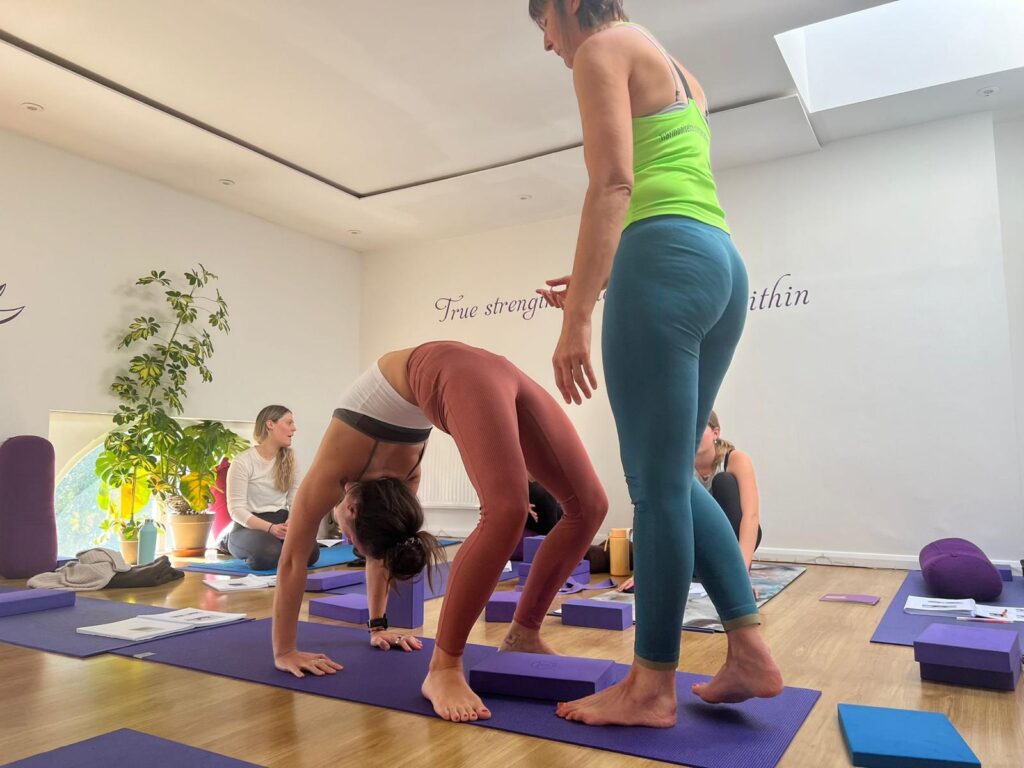
5. Group Support:
Support is a healing force; without it, overwhelm and stress can trigger the sympathetic nervous system’s fight/flight/flee response. Feeling supported nurtures a sense of value, being heard, and worthiness—how every Harmonise trainee should feel. Achieving this is more challenging in online training.
All change can trigger stress which is why I proactively address stress for Harmonise course participants by providing helpful pre-course materials, constant email availability, dedicated WhatsApp groups, and a library of supporting videos. The yoga teacher training course is available online for revisiting material and emergencies, with plans for a Pilates platform. Additional videos explain coursework, and Zoom comes in useful for one-on-one additional support if needed.Beyond practical, professional, and emotional support, the in-person group experience is invaluable. From paired teaching to the final assessment with fellow trainees and the public, a shared sense of ‘we’re all in this together’ prevails. There’s no judgment—everyone is on a similar journey, rowing together in the same boat. This shared experience is priceless.
6. Observational Skills:
Pilates is deeply rooted in alignment and good posture, and the essence of Yoga, represented by ‘asana’ meaning ‘seat’ emphasizes the importance of posture for a calm mind. The idea being that the more neutral the posture (or seat), the less effort is required to maintain an upright position against gravity, and the ability to sit comfortably and meditate. Reading breath, observing posture, and providing timely cues with effective language are at the heart of successful Yoga and Pilates teacher training. Observing students’ posture and alignment in practical classes enables real-time insights for collective learning.
With the best will in the world, you simply can’t carry out a posture assessment as well online. Pilates is deeply rooted in alignment and good posture, and the essence of Yoga, represented by ‘asana’ meaning ‘seat’ emphasizes the importance of posture for a calm mind. The idea being that the more neutral the posture (or seat), the less effort is required to maintain an upright position against gravity, and the ability to sit comfortably and meditate. Reading breath, observing posture, and providing timely cues with effective language are at the heart of successful Yoga and Pilates teacher training. Observing students’ posture and alignment in practical classes enables real-time insights for collective learning.
With the best will in the world, you simply can’t carry out a posture assessment as well online, it lacks the effectiveness of capturing nuanced postural deviations, body language, and social cues present in face-to-face interactions. The clarity of observation is compromised, it lacks the effectiveness of capturing nuanced postural deviations, body language, and social cues present in face-to-face interactions.
7. Hands-On Assists:
Hands on assists can’t be included in any online training course, and while their use is debated, I personally find them a valuable tool, especially in one-on-one settings. It’s not about whether you use hands to assist but when, how, and why. Even if hands-on assists aren’t your preference, mastering alternative methods demands sensitivity and heightened observational skills. (For existing teachers, our upcoming hands-on assists workshops offer the opportunity to practice and refine these skills.)
8. Teaching Practice with Individual Feedback:
You can’t beat EXPERIENCE! Reading, listening, and watching are valuable, but nothing compares to teaching practice with feedback from a trained assessor. In Harmonise courses, you’ll receive individual feedback during at least four practice teaches, fostering confidence, self-belief and growth as a new teacher. Delivering your first 10-minute class early in the course may feel challenging, but it’s crucial for stepping outside your comfort zone. Feedback is given in front of the group (apart from the final assessment), creating a shared learning experience – everyone is in the same boat and you will be in a sea of support! This invaluable aspect is not possible in pre-recorded courses, and Zoom calls simply cannot match the in-person experience.
Save with 2023 prices until 1st Feb
As we enter a numerology year 8, I too, am entering a year 8 on a personal level. Harmonise is having the busiest start to the year than we’ve had in our 9-year history – Bring the expansion on! As a result, I’ve had to register the business for VAT from 1st January and so whilst prices are increasing slightly, I’ve kept the increase as low as I can, up 10% rather than 20% to reduce the impact of this sales tax. Harmonise Grants are still on offer, to help those who may need financial support to access our courses. Payment plans over a longer period can also be arranged on an individual basis.
To welcome in the New Year, I’ve decided to lock in last year’s 2023 prices until 1st Feb meaning generous savings. So if you’ve be on the fence about a career change or pursuing a passion, then it’s time to hop over to the other side and book before the fees go up.
Start your yoga or Pilates teaching journey with Harmonise
Don’t miss out! Only a few spaces left for our in-person Pilates and yoga teacher training starting in January and February. Seize the opportunity, and let this year of expansion propel you towards your dreams!
Apply for a grant place on our website or email clare@harmonisetrainingacademy for queries.
Is your name on one of those last available spots?
Article by: Clare Francis
References:
- “Video chats tax our brains’ attention systems without delivering the same social rewards as face-to-face interactions.” (brainfacts.org).
- “The social systems of the human brain are more active during real live in-person encounters than on zoom” says neuroscientist Joy Hirsch (Huffingpost.co.uk).
